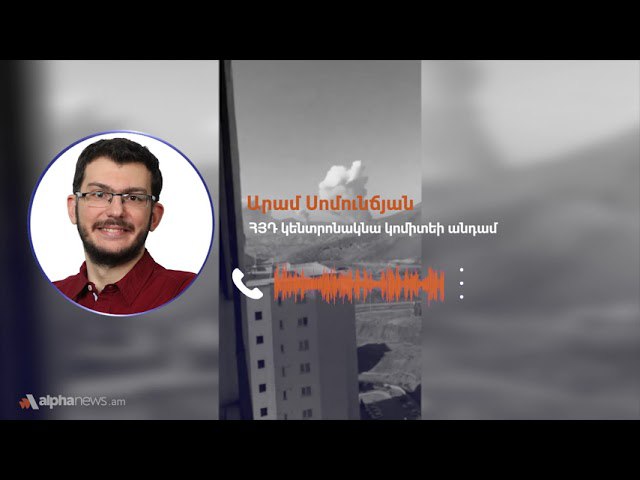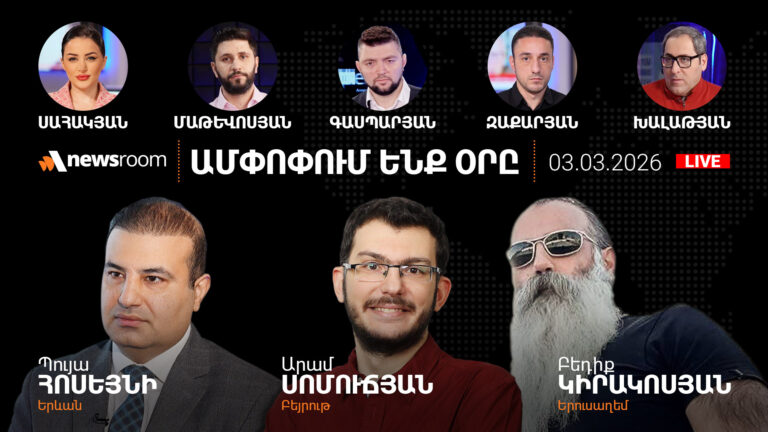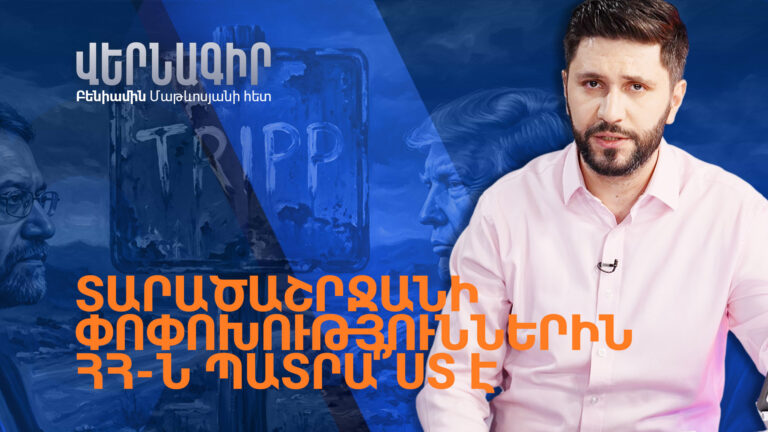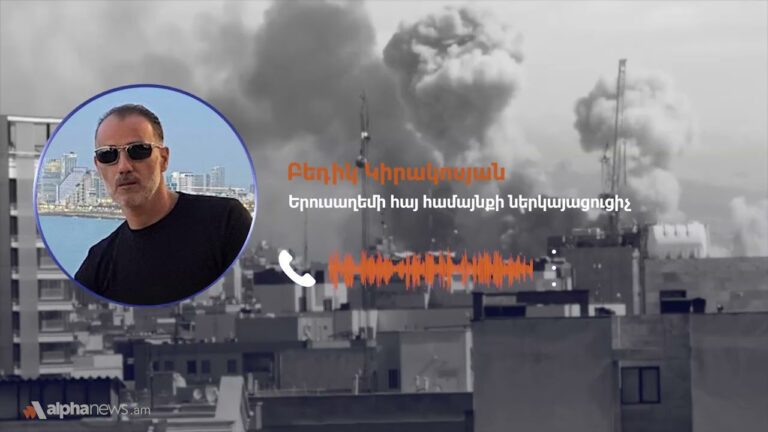Artur Soghomonyan on Preserving the Memory of the Armenian Genocide, Historical Truth, and the Role of the Diaspora
Speaking with Alpha News, philanthropist and businessman Artur Soghomonyan discussed the publication of historical books about famous Armenians and Armenian history, his approach to working with history, the importance of preserving the memory of the Armenian Genocide, and the risks of destroying the connection between Armenia and the Diaspora.
According to Soghomonyan, the Genocide was the greatest tragedy in the history of the Armenian people. He believes that the events in Artsakh in 2023 were a consequence of the Armenian people’s failure to learn lessons from the tragedy of 1915.
“I don’t think any Armenian needs an explanation—it’s in our blood from birth, as it is the greatest tragedy in our history. Had it not happened, we would have a completely different Armenia, a completely different nation. The whole history of Armenia consisted of ups and downs. There were personalities who made the country really powerful, and then internal relations led to a gradual decline. Of course, a major factor was the religious divide and the aggressive policies of Ottoman Turkey, which came to these territories and tried in every possible way to erase this history. But even after 110 years, as we commemorate the victims of the Armenian Genocide, we see that these issues have not disappeared—they persist.
Genocide is the worst crime imaginable, and the tragedy our people endured was a coincidence of several factors. It wasn’t just the aggressive policies of the Ottoman Empire but also internal issues—a lack of unity and internal divisions that, unfortunately, still exist in our culture.
What we witnessed in 2020 was another Genocide. And it happened precisely because we did not learn the lessons, we could not prevent everything that happened. I believe there is much to be done to ensure we learn these lessons,” he said.
Soghomonyan also discussed the books on Armenian history published with his support, including Garnik Banyan’s memoir detailing his survival during the Armenian Genocide and life in a Turkish orphanage, where efforts were made to forcibly assimilate the surviving Armenian children.
“One of the recent publications was Garnik Banyan’s ‘Memories of Childhood and Orphanhood: The Story of a Boy Who Survived the Genocide.’ It is indeed a very powerful book. Despite the fact that it tells about difficult times and events, it reads easily, leaving the reader with a feeling of willpower. I recommend this book to everyone —not just because I helped publish it.
At the same time, we have already published several books and are planning a series of 100 books—similar to The Lives of Remarkable People—but dedicated to great Armenians. Three books have been published in this series: about Ivan Baghramyan, Isakov, and Loris-Melikov,” he said.
“I have come to understand that history becomes a science when it is reliable and based on confirmed facts. Otherwise, it becomes an argument, a tool for ideological wars or legends that distort reality. I think science as history suffers a lot from this. Armenians have such a vast historical legacy—few nations have such a wealth of heritage to present,” Soghomonyan noted.
Amid attempts to revise the Armenian tragedy, he spoke out against distorting the memory of the Genocide, especially in the context of current political trends and rapprochement with Turkey.
“The Genocide is an eternal theme. Every family, I believe, has someone who suffered. In my family, there are ancestors who endured these horrors. I remember Demirchian speaking about his grandparents, who grew up in orphanages after losing their families in the Genocide. For anyone who cares, the topic of the Genocide is so deep, emotional, and complex that it will always remain a part of Armenia,” Soghomonyan added.
He expressed concern that Armenia’s ties with the Diaspora are weakening, stressing that the Diaspora has always been a pillar for the Armenian state, and the loss of this connection could be fatal for the country.
“If we break this bond, we take a serious risk. Armenia has always drawn strength from its Diaspora. What is happening today is a personal tragedy for me—I wake up and go to sleep troubled by it, unsure of what to do. No one knows the exact number of Armenians. Sometimes, when you visit another country, you suddenly hear someone say, ‘I have Armenian ancestors there.’ Approximately three-quarters of Armenians live outside Armenia, and many of them are successful and strong. I believe that the time will come when we will unite, and due to such a huge resource, it will be possible to make Armenia a country on par with Switzerland,” Soghomonyan emphasized.
It should be noted that a series of historical programs about prominent Armenians from various countries and eras will soon be featured on Alpha News in collaboration with Artur Soghomonyan.







